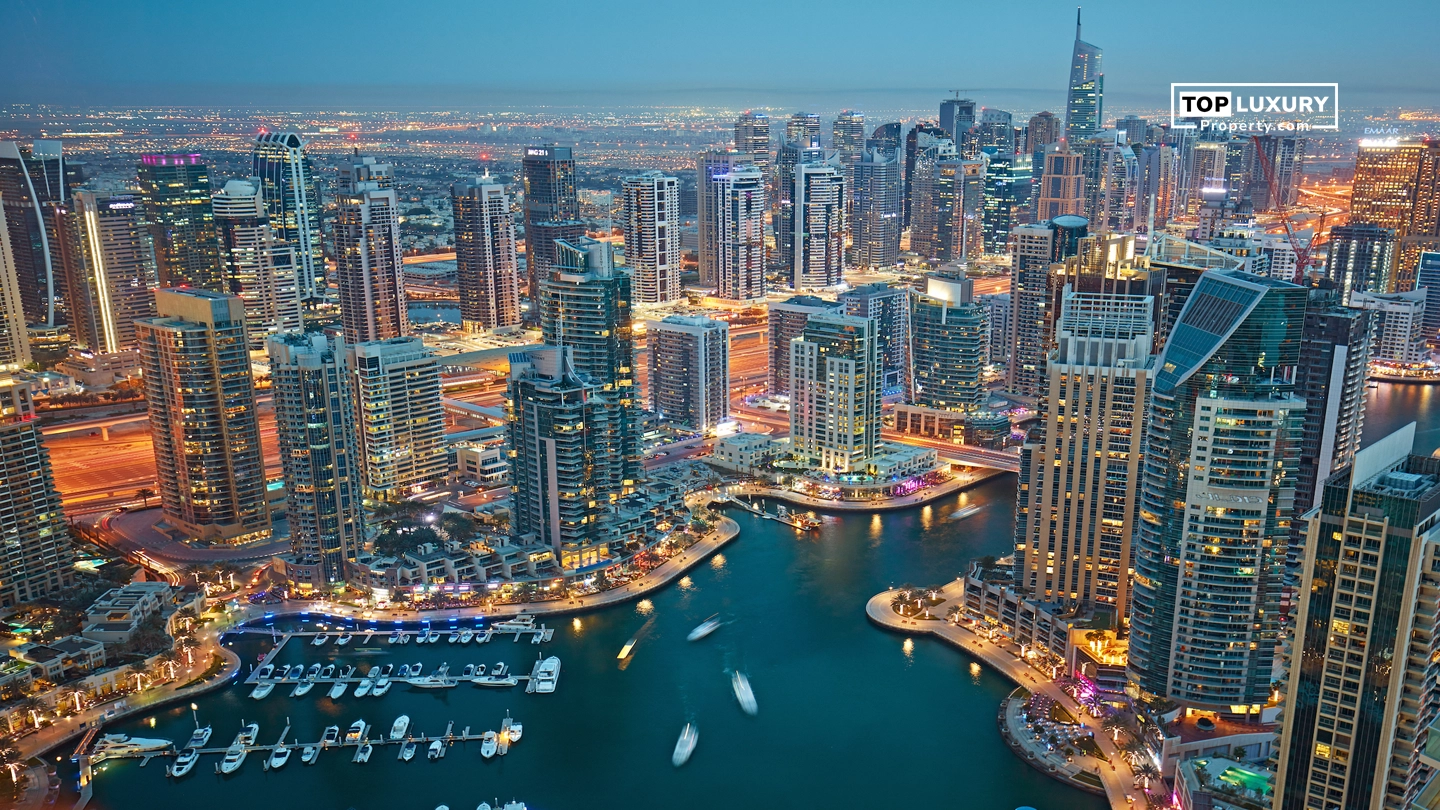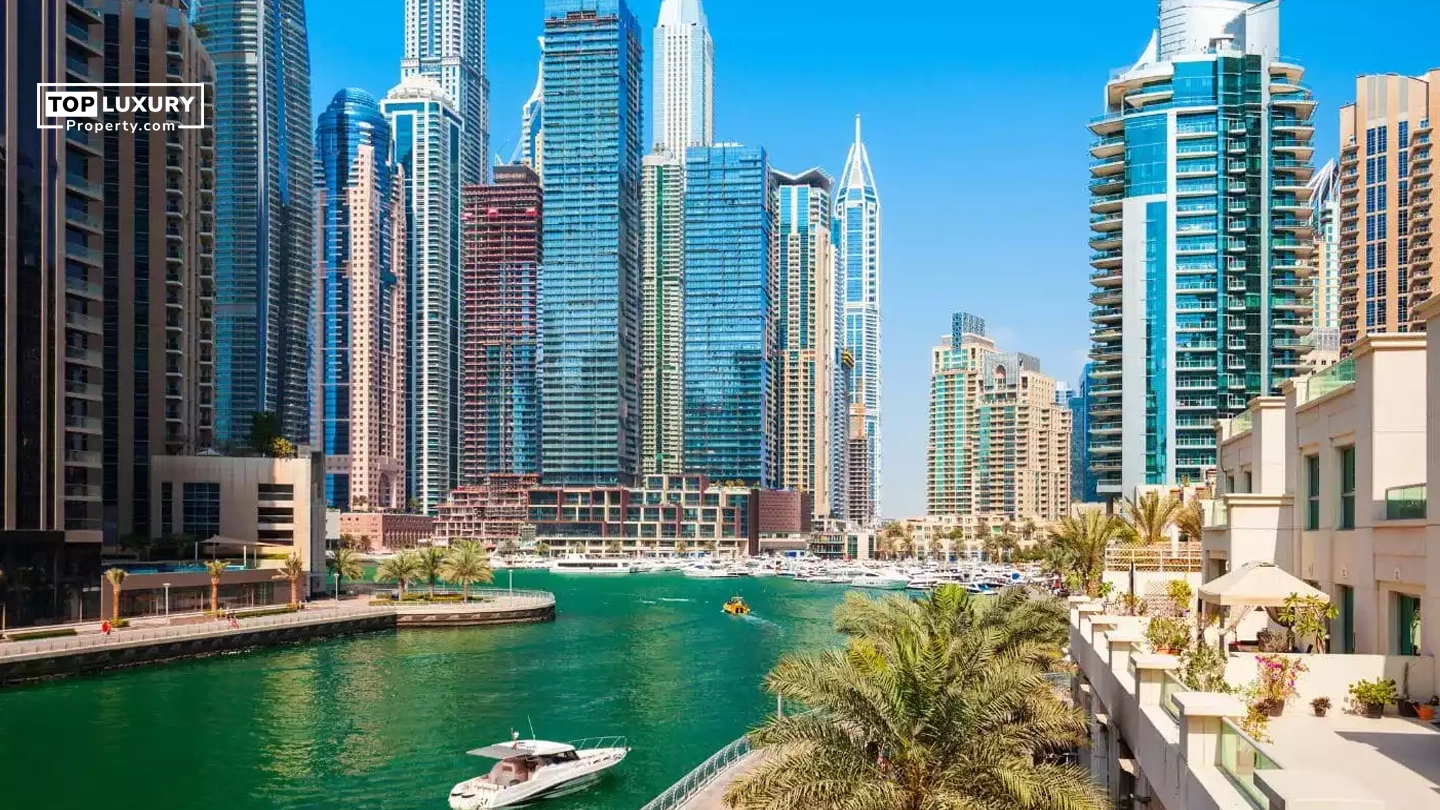As a global hub for business, tourism, and investment, Dubai has emerged as a highly attractive destination for real estate investors and home buyers. Let’s explore Dubai’s real estate position in upcoming years.
Sector Wise Dubai Real Estate Market Forecast 2030
Residential Sector Outlook
Excluding the crisis period, UAE residential real estate will continue its strong growth trend, with the CAGR evaluated at around 8.4 percent from 2024 to 2030. After that, Dubai would be one of the most preferred destinations for investment in residential sectors due to its geographic location. It combines Asia, Europe, and Africa, along with its lush infrastructure and government initiatives towards attracting foreign investors. The median prices of apartments and villas would further rise with continued demand for prime locations.
Other countries that have also increased their interest in Dubai’s real estate market include the United Kingdom, Egypt, Lebanon, India, Pakistan, and Turkey. Government policies concerning the 10-year golden visa and residence permits for retirees and remote workers will continue to attract different profiles of investors in the near future.
The pandemic is altering buyer preference for larger homes, and more outdoor areas. For this reason, in Q2 2024 villa transactions increased up to 18.4% compared to Q2 2023. Not only villas, apartments are in demand among new professionals which shows a 45% growth compared to Q2 2023. Hence, developers are expected to adjust and set a focus on developing more spacious homes with ample residential projects, which can offer what customers and homebuyers are looking out for lately.
Commercial Sector Outlook
The commercial property market of Dubai is very aggressive, with many opportunities opened up to investors. The city is on course to add some 92,000 square meters of office space, bringing the total market stock to 9.2 million square meters. This will be helped along by new entrants into the market and the expansion programs of existing enterprises.
The office sector has had a 28% year-on-year rise in its volume of leasings, front-ended and driven by blue-chip multinationals. Retail and logistics markets are also performing very strongly, with nearly double the volume of leasing activity compared with the prior year.
This growth can partly be attributed to its strategic location and business-friendly environment, with initiatives aimed at attracting foreign capital and talent. The government is spending billions on infrastructure. It includes $35 billion worth of expansion works at Al Maktoum International Airport, which will see 260 million passengers annually. This airport serves not only as a feature of daily flights but also represents a global hub of trade, commerce, and culture. These are going to be the key steps that would fulfill the commercial sector of Dubai.
Moreover, DIFC is going to develop a huge square-foot project of 600,000 square feet of office space and 17,200 square feet of retail space by the year 2026.
The commercial outlook seems to be optimistic for the period up to 2030. In this regard, economic growth and foreign investment are likely to drive net office rents higher. Further, the growth in the industrial and logistics segment is likely to continue, although the retail segment is likely to sustain a growth of 6 per cent in 2025-27.
Hospitality Sector Outlook
The hospitality market is likely to witness a strong recovery in Dubai throughout 2023, witnessed by rising KPIs such as occupancy and average daily rates. It has further consolidated its position as one of the world’s leading tourist destinations, supported fully by handling the pandemic problem of COVID-19. Here Dubai 2040 urban master plan also propels the hospitality sector.
In alignment with Dubai’s sustainable initiatives, the hospitality sector will engage much in eco-friendliness, which involves renewable energy, water conservation, and waste management. Hospitality operations will likely integrate innovative technologies with smart solutions to redefine guest experience and improve operational efficiency.
Competitive Scenario and Key Players
“Dubai’s residential real estate market is characterized by a highly competitive landscape. Active leading players are shaping the dynamics of the industry.” Major companies profiled in the market are as follows:
- Dubai Holding LLC
- Nakheel Properties
- Emaar Properties PJSC
- DAMAC Properties
- Vincitore Realty LLC
- Aldar Properties
- Majid Al Futtaim Properties
- Deyaar Properties
- Azizi Developments
- Omniyat
- Manazel.
For market leaders to cash in on this growing demand for residential properties, they leverage such strategic initiatives as mergers, collaborations, and acquisitions to enhance their market positions further. Such a competitive scenario is regularly intensified through the continuous creation of modern high-rise complexes and luxury condominiums, which are likewise responsive to diverse budgets and tastes.
Dubai Real Estate Market Current Performance
Dubai’s property market has been in good health, and the city’s performance has been strong across all sectors, fuelled by its preferred safe haven status amidst global economic and geopolitical headwinds. Key economic and demographic indicators continue to blaze a trail of growth, with Dubai’s population crossing the 3.6 million mark in 2023, up 1.4% year-to-date. tourist arrivals also saw a strong uptake—up 19.9% between January and November 2023—to 15.4 million visitors.
Notably, Dubai’s residential market proved to be very interesting, with transaction volumes up by 29% from the volume experienced in the previous year in 2023. The secondary market properties constituted 41% of the total transactions. This shows continued interest in what Dubai presents in terms of real estate. The other interesting fact is that the top three areas in terms of sales price growth on a year-on-year basis have been the Palm Jumeirah Villas, Dubai Sports City , and Dubailand . It shows enormous zeal for premium residential assets.
Latest figures from DXBinteract reveal that over 43000 property transactions took place in Dubai during Q2 2024, setting a new record. Compared to the same period last year, transaction volumes have surged by 44%. The total value of transactions crossed AED 124 billion, rising by 36.6%.
Both off-plan and secondary properties saw an uptick in sales activity. Cash purchases increased by 19% while mortgages rose by 8%, indicating continued foreign interest alongside lending incentives for residents. Luxury properties also trended upwards, with transactions increasing by 31% year-on-year. Here is the comparison of offplan vs. ready property growth in Dubai.
| Property Type | Price | Change vs 2022 |
|---|---|---|
| Off-Plan Villa | AED 1K | +17% |
| Off-Plan Apartment | AED 2K | +0.6% |
| Ready Villa | AED 1K | +22% |
| Ready Apartment | AED 1K | +4.6% |
Reflecting the robust sales activity, average property prices in Dubai grew by 13.5% year-on-year in Q2 2024. Prices averaged AED 1516 per square foot, reaching the highest level since 2009. While apartments saw a 45% annual price growth, villa prices outpaced at 18% over the same period. Here is the area-wise growth in Dubai.
| Rank | Area | Volume | Value (AED) | Per Sq.ft | Price Change |
|---|---|---|---|---|---|
| 1 | Dubai Marina | 4,490 | 11.6B | 1.5K | 8.6% |
| 2 | JVC | 3,880 | 3B | 950 | 5% |
| 3 | Business Bay | 3,580 | 5.6B | 1.7K | 0.6% |
| 4 | Downtown Dubai | 2,980 | 9.7B | 2.2K | 20% |
| 5 | International City | 1,865 | 720M | 490 | 8.6% |
The rental rates at Dubai appear very promising and fast-growing too. The highest increases in Jumeirah Beach Residence (JBR), Town Square, Dubai Production City, Dubai Healthcare City 2 and Meydan were witnessed at 21% to 22%. Even International City, which saw the least rise of 8%, depicts Dubai’s strength and popularity
Factors Propelling the Dubai Residential Real Estate Market:
Governmental support and directives: Strategic initiatives by the Dubai government were quite impactful in attracting interest from foreign capital and stabilizing the residential market during the scenario. For example, the recently introduced 10-year golden visa and relatively freehold residency permits for both retirees and remote workers.
Changing Lifestyle Preferences: Demand for bigger houses and open spaces has increased and got accelerated due to the pandemic’s impact on how remote working and online education were fast-tracked. Confidence of Investors: Initially, investors’ confidence was further enhanced because Dubai successfully dealt with the global pandemic, while it is also viewed as a desirable safe haven for investors worldwide.
Urbanization and Demographic Shifts: The growing foreign workforce and increasing expatriate population in Dubai are driving the demand for rental properties, especially for apartments and condominiums.
Diversification of Investor Base: Indian HNIs are the prominent investors in Dubai. The economy has diversified its businessmen and professionals from other nationalities which also occupy the top investors’ list — the United Kingdom, Egypt, Lebanon, Pakistan, and Turkey.
Affordability and luxury positioning: Unlike other financial centers worldwide, including Hong Kong and Singapore, Dubai today represents some of the most affordable luxury destinations. This makes Dubai an even more attractive place for investment by high-net-worth clientele.
Challenges and Risks
.Although the general outlook is positive, Dubai’s residential real estate market is not risk- and challenge-free. An oversupply situation and low oil prices, for example, are just two factors that weighed down the performance in the recent past. Additionally, further itemization of the world economy and continued interest rate increases—in which Dubai, due to its peg to the US dollar, must keep up—will result in a further market slowdown.
The developers and the investors shall closely watch the macroeconomic factors and adjust their strategies to move with the market dynamics. Keeping in view the most important balance between supply and demand, along with a diversification of the investment portfolios, is very important for the growth and sustainability of Dubai’s residential real estate sector.
CONCLUSION
With strong economic fundamentals, a strategic location, and the government’s commitment, the Dubai real estate market is just about ripe to further grow and transform itself in the next decade. Some of the key factors, such as economic diversification, population growth, and government-friendly policies, are contributors that will continuously fuel demand for residential, commercial, and hospitality property spaces.
While challenges may arise, Dubai’s historic resilience and the government’s proactive approach to managing the real estate sector suggest a promising outlook for the market’s long-term performance.
Undoubtedly, the real estate sector is bound to take center stage in the reshaping of Dubai and firmly entrenched it as a destination of choice for any investor, business, and livability aspiring city.






